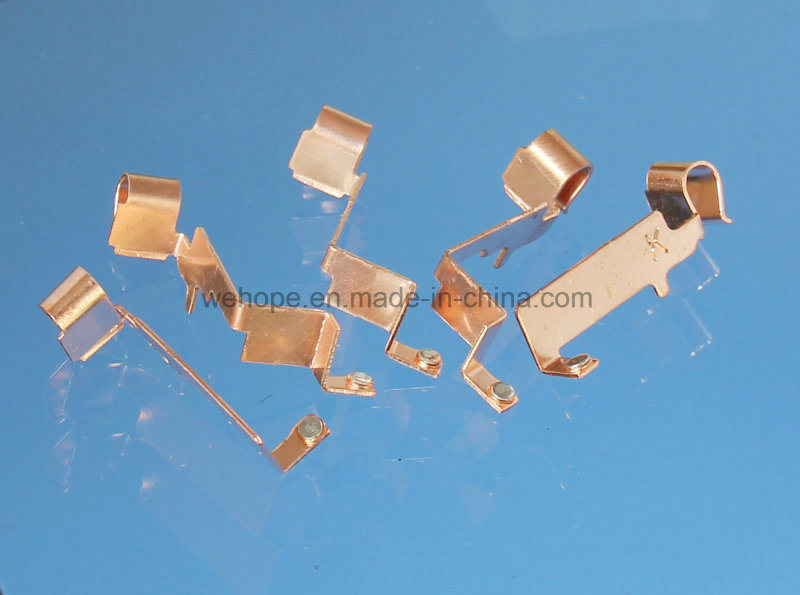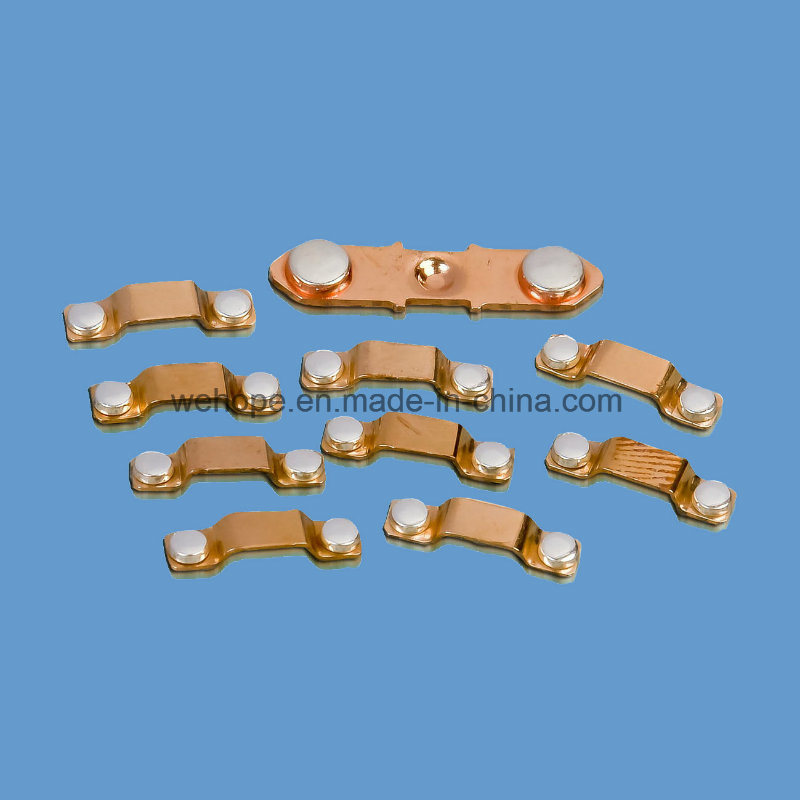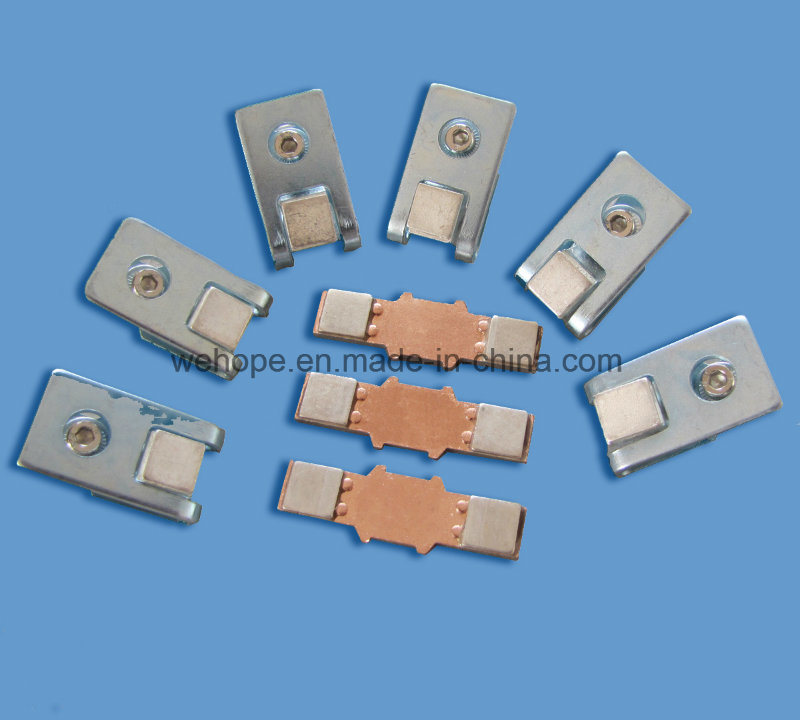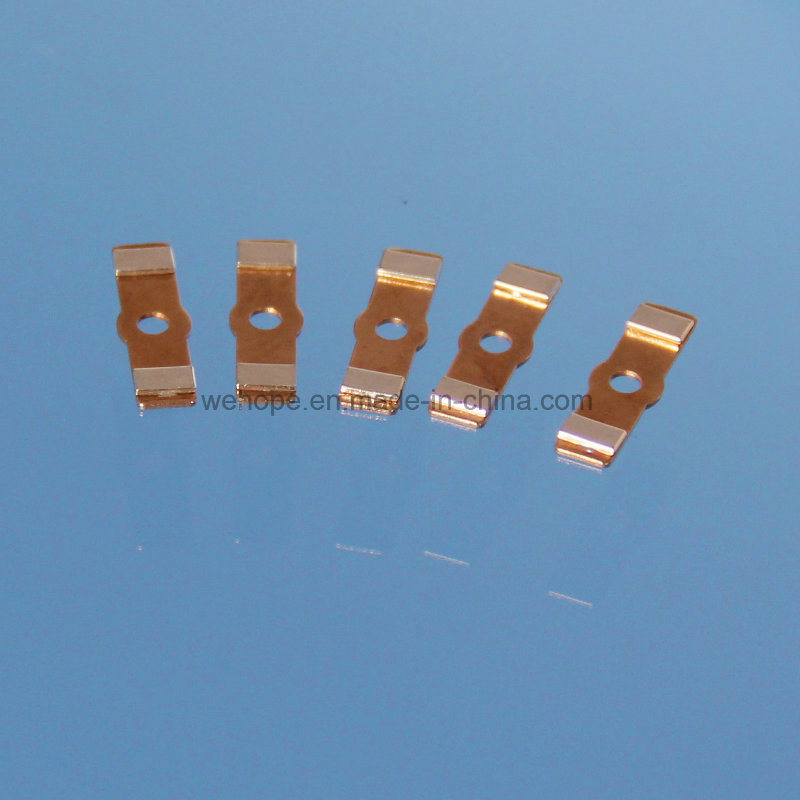DC contactor is mainly used for long-distance switching on and off DC circuit and frequent DC motor start, stop, reverse and reverse braking. Although DC contactors are not widely used in AC contactors, they have their own unique features and uses, and play an important role in low-voltage electrical products around the world.
Model: contact + stamping + contact components
Features: Contact and copper alloy or copper and other automatic spot welding and automatic riveting integration
Material: silver nickel, silver copper oxide, fine crystal silver, silver cadmium oxide, silver tin oxide, brass, copper
Uses: contactor, small switch, starter, thermostat
Contact performance: In order to improve the reliability of the contact work, the basic requirements of the contact material is:
1, the contact material conductivity and thermal conductivity to be high, in order to reduce the heat loss when the contact through the current to reduce the contact surface oxidation;
2, the melting temperature and the boiling point of the contact material, melting and evaporation latent heat to reduce the arc or spark under the action of the contact wear and difficult to make contact welding occurs;
3, the contact material on the chemical properties of the surrounding environment to be stable, the contact by the environmental pollution after the change in contact resistance, contact resistance and stability;
4, the contact material hardness and elasticity should be appropriate, hardness is too large, the contact area is small, flexible material in the contact closure, the bounce between the contacts to increase wear and tear;
5, contact components, contact components, contacts and copper alloy or copper and other automatic spot welding and automatic riveting integration.
Material: silver cadmium oxide, silver oxide copper, silver nickel, silver tin oxide, silver tin oxide indium oxide, silver zinc oxide as a whole and composite.
SGS certification, ISO9001 certification
6, the contact material easy to process and welding;
7, the price of contact materials should be low. On the strong contact with the material, the important requirements are:
has a low contact resistance, to prevent over-current through the rated current;
wear rate and mechanical wear rate is small, with a longer service life;
anti-welding performance, in the case of failure can be successfully broken circuit;
small residual current, arc extinguishing ability, breaking large current can quickly arc, but will not cause the arc re-ignition or continuous current. For weak contact materials, requirements:
low and stable contact resistance and small electric wear rate, longer service life;
has a high starting voltage and a small *** *** *** small arc current, so that the contact as far as possible in the absence of arc operation;
This contact closure force is small, so the mechanical wear is not an important issue. For DC contact, it is required that the material transfer from one side of the contact to the other is small under DC operating conditions.
Electrical contact components can be widely used in switches, relays, thermostats, circuit breakers, contactors, controllers, timers and other low-voltage electrical products and household appliances.




Â
Â